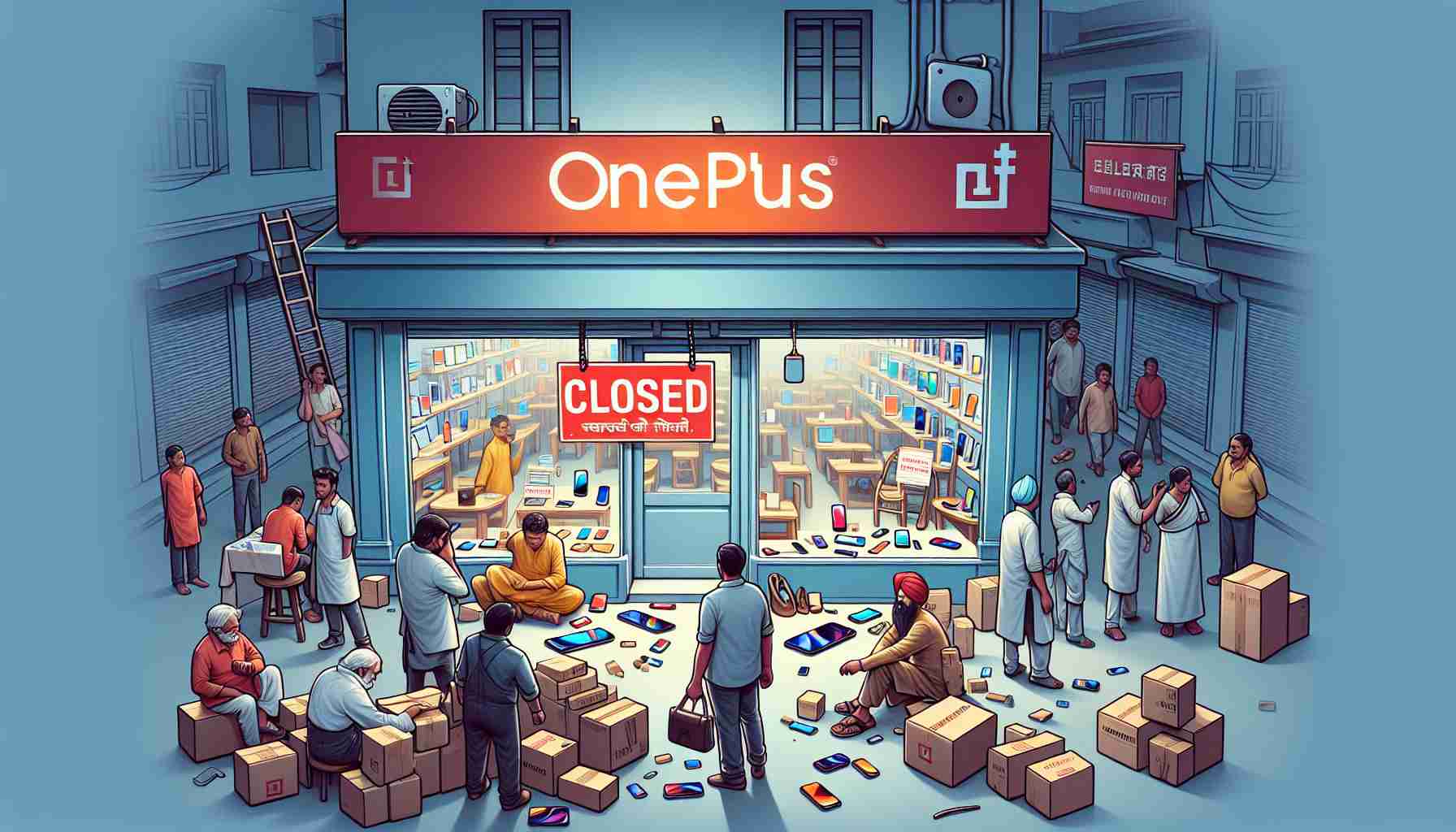Major disruptions are set to affect the Indian mobile market, as numerous prominent retail chains announced their decision to suspend sales of OnePlus products. Starting May 1st, a broad array of OnePlus merchandise, including smartphones, accessories, and other tech gadgets will no longer be available at about 200,000 retail locations spread over key Indian states like Andhra Pradesh, Telangana, Tamil Nadu, Karnataka, Maharashtra, and Gujarat.
Retail giants band together to challenge OnePlus policies. This decisive measure stems from a concerted stance taken by the South Indian Organised Retailers Association (ORA), with members such as Poorvika Mobiles and Sangeetha Mobiles, commanding substantial influence within the southern region and beyond. The crux of the issue revolves around unsatisfactory profit margins and lengthy warranty service processes.
A focused attempt to resolve contentious issues has been reported, as OnePlus actively engages with its partner network to alleviate concerns. The company emphasizes its long-standing relationships with retail partners and its dedication to sustaining robust, mutually beneficial partnerships.
The collective voice of retailers highlighted the stress of mandatory bundling of products and the subsequent impact on inventory and sales. Furthermore, the problematic handling of service claims has also contributed to strained relations between the brand and retailers. Without a timely resolution, OnePlus stands to lose a significant portion of its market presence in one of its most vital regions.
Important Questions and Answers:
1. Why are Indian retailers suspending sales of OnePlus products?
Retailers in India are suspending sales of OnePlus products due to unsatisfactory profit margins and lengthy warranty service processes, as well as the stress of mandatory bundling of products which affects their inventory and sales.
2. What is the South Indian Organised Retailers Association’s (ORA) role in this situation?
The ORA, with influential members like Poorvika Mobiles and Sangeetha Mobiles, has taken a collective stance to suspend OnePlus product sales in order to address concerns about the brand’s policies.
3. What might be the impact of this decision on OnePlus?
OnePlus could potentially lose a significant portion of its market presence in India, especially in the southern states, which are considered vital regions for its sales.
Key Challenges and Controversies:
One key challenge for OnePlus in this scenario is maintaining a strong and beneficial relationship with its retail partners while also addressing the issues raised by the ORA. Resolving the dispute with retailers without sacrificing their own business policies and profit margins presents a complex dilemma for OnePlus. Furthermore, there is a controversy over the mandatory bundling of products, which places retailers in a tough spot with their inventory management and sales strategy.
Advantages and Disadvantages:
From the retailers’ perspective:
Advantages:
– Taking a stand could potentially lead to better trade conditions and profit margins.
– It may reduce stressful inventory management caused by mandatory bundling.
Disadvantages:
– The suspension might lead to a loss of customers seeking OnePlus products.
– There might be an adverse impact on the overall sales figures if OnePlus customers shift to competitors.
From OnePlus’s perspective:
Advantages:
– It may be an opportunity to reassess and improve their retail policies and strategies.
– The company could potentially streamline its warranty service processes to better serve partners.
Disadvantages:
– Loss of sales in the impacted states due to the suspension.
– Potential harm to the brand’s reputation due to disputes with retailers.
Here is a related link for further official information from the main domain of OnePlus: OnePlus Official Site. Please note, this link is provided assuming the domain is still valid and relevant to the topic as it leads to OnePlus’s official site, which should provide updates or responses to the situation with Indian retailers if any are publicly made available.
The source of the article is from the blog foodnext.nl
